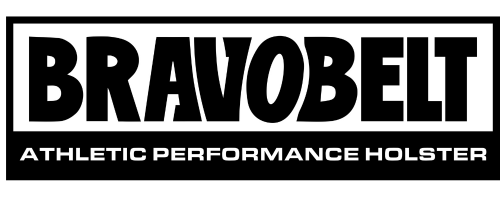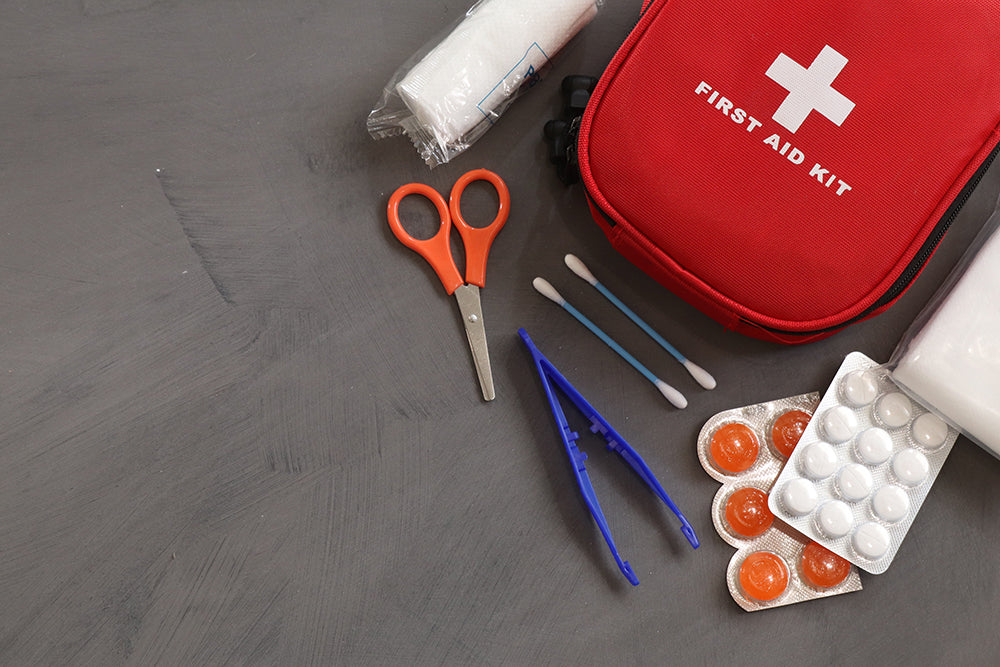Accidents can happen when you least expect them. Car accidents, natural hazards, workplace issues, robberies… The list goes on and on! In cases like these, having a concealed belly band holster is great to have, packed with guns, knives, and utility tools. There’s also one thing people need to carry all the time that is often overlooked: medical supplies.
Why Should You Include Medical Supplies in Your Everyday Carry?

Survival shows and documentaries always show us the importance of first aid kits. Although things don’t get as crazy as what we see on television and in video games, there are genuine threats all around us and it’s always best to be prepared.
Carrying medical supplies daily could mean the difference between life and death. It doesn’t even have to be extreme like stopping a bleeding wound. Just think how convenient it is to be carrying around an OTC painkiller in case you get a really severe headache on the way to work.
You don’t need to be a licensed medical practitioner to carry medical supplies. In fact, having basic lifesaving equipment (as well as skills) would be an immense help when you are in a pinch. Remember, the goal is to take care of the situation until the professionals arrive or you can go get treated!
What Should You Include in Your EDC Medical Kit?

Photo by Roger Brown from Pexels
As awesome as it is to be ready for any emergency, there’s such a thing as too much when carrying first aid. Sure, it won’t hurt to be prepared, but carrying too much can impede your movement. It would be best if your medical kit can fit in the palm of your hand, or can be comfortably attached to your concealed carry holster.
So what should be in your medical kit? Let’s start with the basics!
Bandages
From Band-Aids to cloth-based ones like the triangle bandage, you should have bandages ready for any kind of injury. The point of a first aid kit is to ease pain and blood loss until you can get professional medical services.
Sterile gauze pads, stretch-roll gauzes, and medical tape
Bandages are not enough to patch up certain injuries, so you should also have gauze on the ready. Take note: gauzes are used to patch the wound, and the bandages are used to control the blood.
Antibiotic ointments and fluids
You should clean a wound before dressing it. This is where ointments and fluids come into play! Disinfect both the wound and its surrounding area, then dress it with gauze.
Pain-killers, anti-histamines, and antidiarrheals
Sometimes, it’s not a wound that you need to worry about. You could experience headaches, allergies, and loose bowel movements. Bring a tablet or two of each to ease symptoms while on the road.
Tweezers and foldable scissors
You will never know if the emergency is a splinter, or a broken glass shard penetrating your skin. Whatever the case, always have these tools ready.
Surgical gloves and face masks
While these are not exactly first aid tools, these are still needed to avoid cross-contamination and infections.
Here are other essentials you can have in your EDC medical kit:
- Antipyretic medicine
- Alcohol prep pads
- Eye drops/eyewash
- Q-tips
- Sanitary wipes
- Lip balm
- Burn gel
- Emergency blankets
- Electrolyte replacement tablets
- Hand sanitizer
While the ones mentioned above are the most essentials, anything else you bring from this point onwards is situational yet still important. Whatever you bring in conjunction with the basic ones differs depending on you and where you’re going. Camping out in the wilderness? Bring bug-repellent cream to fend off insects. Going to be under the sun for a very extended amount of time? Sunblock. Have asthma? Bring your inhaler.

Another thing to consider is that you should know how to properly use everything in your EDC medical kit. If your medical knowledge is a little more advanced, you could also consider the following.
Tourniquet
This lets you stop bleeding in most wounds. They are also considered to be the fastest way to stop blood loss from a leg or arm.
Sutures
If you know how to do stitches, these can close up wounds to your skin or other tissues.
CPR mask
You can use this for the safe delivery of rescue breaths during a respiratory arrest or cardiac arrest. There are different sizes for children and adults.
Epipen
This auto-injectable device delivers a life-saving medication to someone experiencing a severe allergic reaction.
Where Can You Carry Your EDC Medical Kit?

Of course, the medical stuff you need to carry is the first thing you need to worry about. What about how to carry them?
There are containers as small as a wallet specifically designed to carry EDC medical kits. There are also different bags and boxes you could choose from. Thankfully, the BravoBelt belly band holster is not only made to hold guns and bullets. It can also double as your utility belt! With one (1) detachable pouch plus two (2) auxiliary pouches, you can use these to conveniently carry the basic first aid supplies you need!
Make sure you take advantage of our 2021 holi-deals! Get your BravoBelt belly band holster on sale when you use promo code SANTA15 on checkout for 15% off!


Share:
How Can I Use a Belly Band Holster?
Our Top Tips for Comfortable Concealed Carry